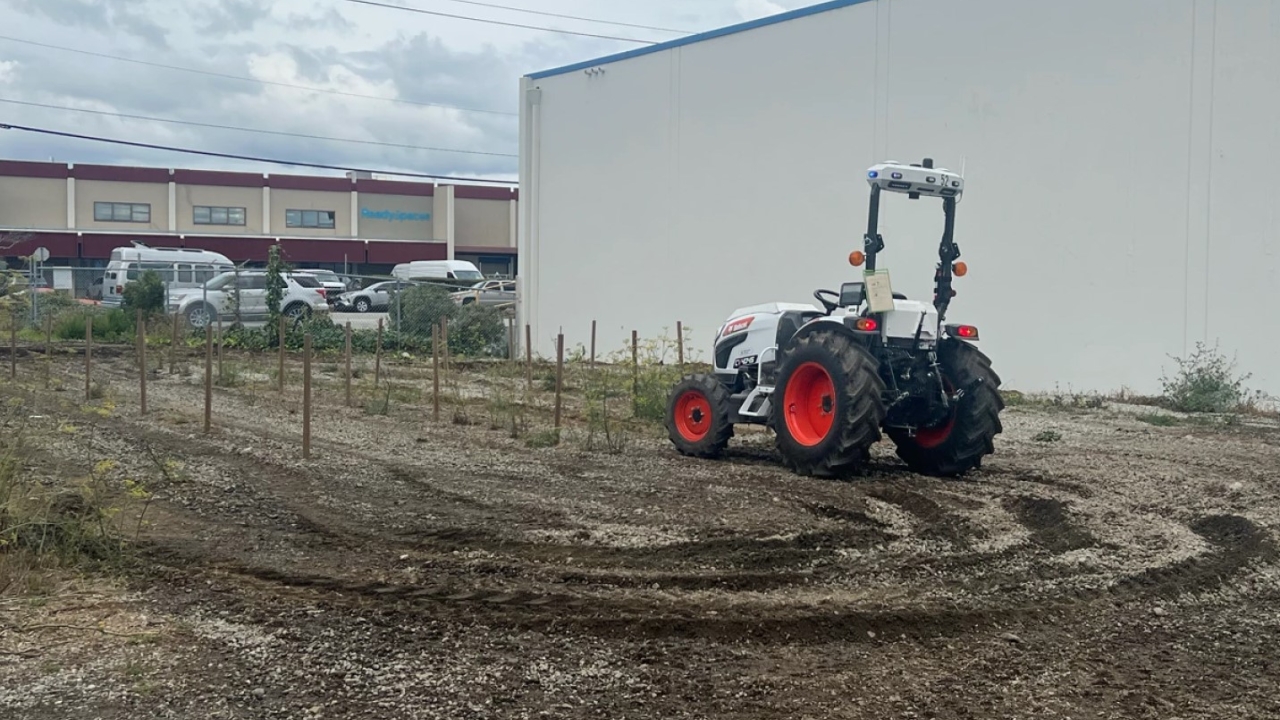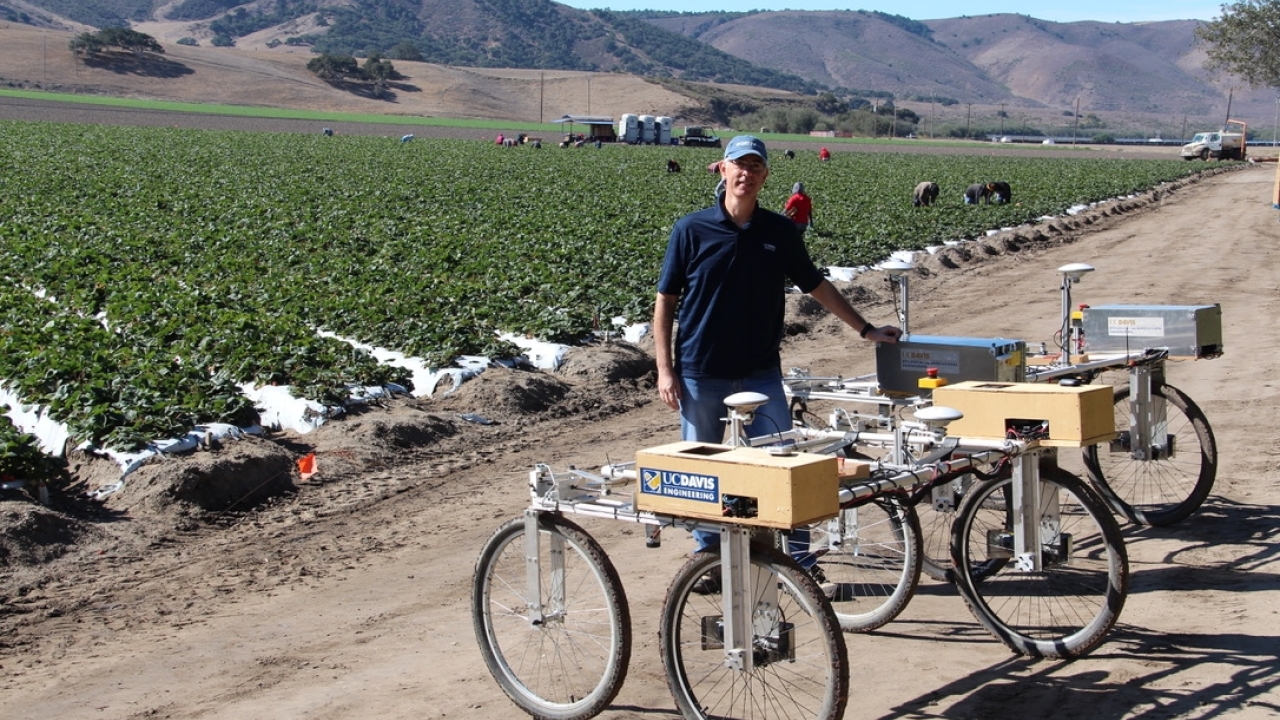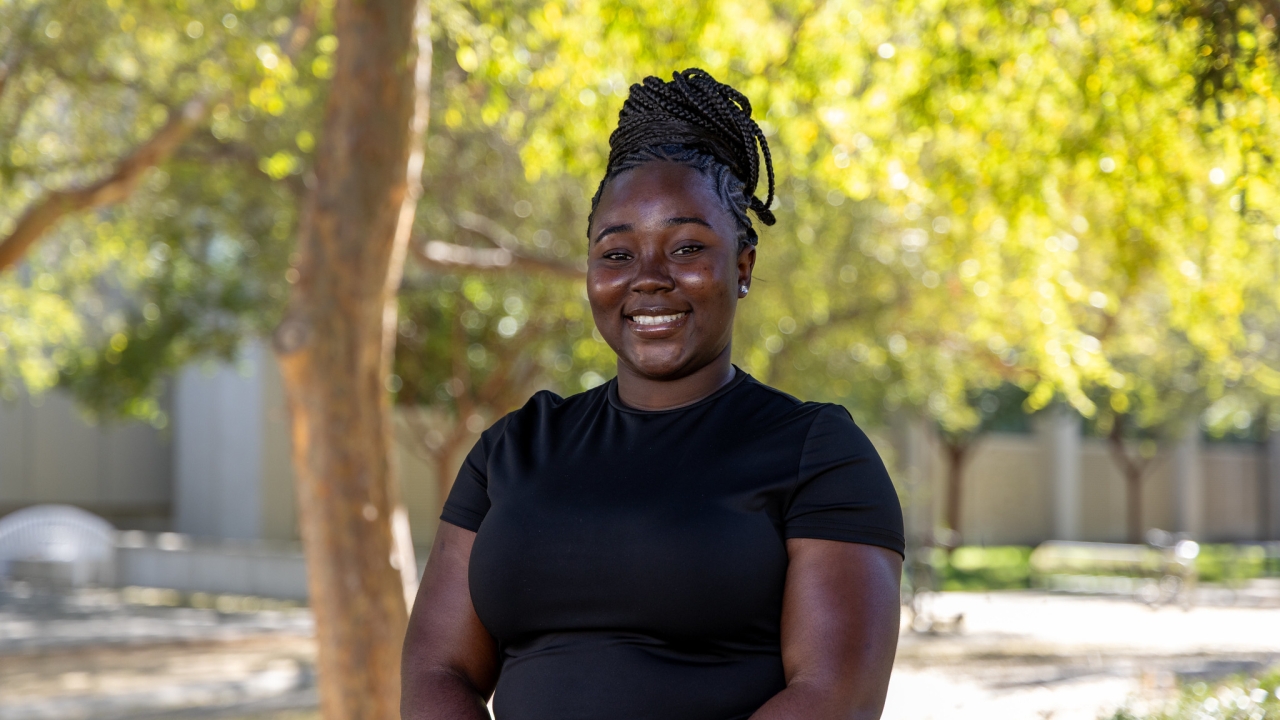
Alum Tim Bucher on Saving Farms from 'Farmageddon'
Tim Bucher ’86, an electrical engineering alum of the University of California, Davis, and a member of the Dean’s Executive Committee, is the CEO and co-founder of agricultural technology company Agtonomy. He says he created the prototype that became the company’s first autonomous tractor to save his own farm — but in doing so, developed something with far broader appeal.
From Farmer to Engineer
Bucher’s background is unique. Raised a dairy farmer, he says he has always had a love of tractors, and he designed, fixed and repaired his family’s tractors. He says he always knew he wanted to be a farmer.
“I fell in love with the growing of grapes, because all of my friends were growing grapes in Sonoma County, Calif., and were mostly Italian immigrants,” he says. “I learned how to prune grapes probably by the age of 8. I learned how to make wine by the age of 10, and I bought my first vineyard at 16.”
He named his vineyard Trattore Farms, which means tractor in Italian and is a nod to his love of tractors. He also grows olives for olive oil processing. He studied agriculture at the University of California, Davis, and he says one computer course changed the trajectory of his future.
“I went in a farmer, and I came out a farmer and an engineer,” he says.
Bucher then went on to study computer science at Stanford University while still farming. He says he deployed various high-tech implements on his vineyard, from systems for automatic water recycling, computer-controlled fermentation tanks and more.
Bucher also has had a long career in the tech space, including executive roles at Apple, Microsoft and Dell.
“My engineering background and my farming background allowed me to do agtech for decades before the word agtech existed,” he says. “I can do anything from anywhere in the world, and it’s allowed me to be in Silicon Valley at the same time as well. There was one thing I hadn’t automated, though, and that was the field work.”
Bucher says things on Trattore Farms were good — until about seven to 10 years ago, when he realized his farming expenses outpaced the growth of his farm’s revenue, which he called “farmageddon.”
“As I started to dig into it, I realized that the amount of money that I’m paying on labor is just going up and up and up,” he says. “Eighty percent of your labor force is needed preharvest and postharvest — whether it’s in the pruning activities, the mowing activities, the fertilizing, the plant cultivation or spraying. If labor is the biggest part of my expense and I’m going underwater here, and of that, if 80% is preharvest and postharvest work, why can’t I automate some of this?”
Idea to Prototype
Bucher says that with the massive amount of money put into researching self-driving cars, he saw potential for some of that knowledge to be deployed in agriculture. He named his first prototype Spirit after the NASA Mars rover.
“On the one hand, the technology for self-driving cars is much harder from a navigation standpoint, but on the other hand, the work that you’re doing in agriculture is much more difficult, because you’re not just navigating the vehicle from Point A to Point B,” he says. “You’re doing work along the way, and that work has to be correct.”
And it was after showing the prototype to a friend, who became a co-founder, that he realized he had created something with potential.
“I built this prototype with some friends and then showed it to my other colleagues from Silicon Valley, and said, ‘Look at what we built to save Trattore Farms. And one of my co-founders, Valerie, said, ‘This is not about saving Trattore. It’s about saving the world,’ and we started a company.”
Media Resources
Christina Herrick is an editor for The Packer.



